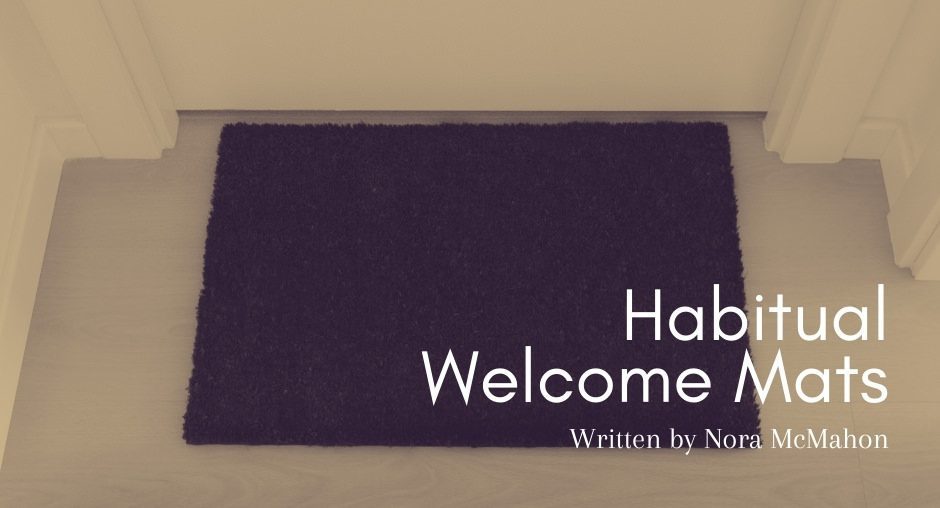Habitual Welcome Mats

Editor’s Note: Lay Missioner Nora McMahon reflects on the acts of Holy Thursday and how it can relate to our modern times.
Today is Holy Thursday (though by the time you are reading this I am sure it is well past that) and the readings and focus for Holy Thursday has always been on the last supper. Specifically the Church’s remembrance of the washing of the feet. I’m sure we can all remember a time when we saw such a thing and are hoping to see it again. I wonder, though, how many of us have reflected on what it would mean to live in a time and place where such a thing between servants and guests was commonplace? The last supper is not the only time we hear of someone washing another’s feet after all.
We are not given much information on the protocols of this practice and do not really have an equivalent in our world today. Sure it is normal in a lot of the world to remove your shoes when entering someone’s house and in those places it is usually common decency to provide your guests with slippers of some sort. No washing of another’s feet included. On the other end of the spectrum, where it is not common practice to remove your shoes, there exist (at least in my experience) people who demand their guests remove their shoes while the other occupants of the house keep theirs on, slippers and washing purposefully excluded. Sure such practices nowadays have their do’s and don’ts but they are quite unlike the intimacy that is the washing of another’s feet that existed in ancient times. So if we are called to follow this example, how can we when it isn’t to be found in our time?
There could be an equivalency in the job of a pedicurist nowadays. Ocean Vuong, the award winning poet, in an interview spoke of how his mother was treated and viewed doing such a job. How she was never looked in the eye and always had to look up at her clients, never being at their level. Perhaps that is exactly how the servants who washed the feet of the guests experienced it too. Perhaps it is with this stigma in mind that Jesus’ called his followers to do such a thing. To do something because you are expected to, but you will be looked down on for doing it anyway. To care for another when they couldn’t care to know your name or face.
There’s no denying it, that’s hard. Some would say impossible, but people still do it. How can persons that have never known those struggles start on this road? I’m not suggesting anyone grab a random person’s foot and start scrubbing for one thing.
I think it’s a mindset and with that actions follow. I only started to think of this when I came across it in Cochabamba. With the pandemic, as everyone around the world is used to by now I’m sure, you are asked to sanitize before entering a store or office. In most of the world from what I’ve seen and heard the main concern is the hands. In Bolivia, though, they give equal concern to the feet as well. It struck me, and everyone I asked about it didn’t see it as unusual and, in fact, were surprised that I was surprised.
It was unusual but I put it out of my mind and moved on, until I heard again the story of the washing of the feet. That’s what it was! This simple mat filled with sanitizer that we are asked to step into was a quick simplified version of this ancient tradition. The covid friendly welcome mat reimagines another culture where the cleaning of one’s feet was also necessary before entering a building, though for startlingly different reasons.
I wonder if this will persist after covid is only a memory, and to tell you the truth, I hope it does, in one way or another. The reimagining of ways that we are called to care for one another is something that I hope to continue to discover for the rest of my life.
Reflection question: Is there a way you can reimagine the ritual of washing another’s feet in today’s world? If not is there something you can do for others, especially strangers, often enough that it will develop into a habit?
Tagged in:

